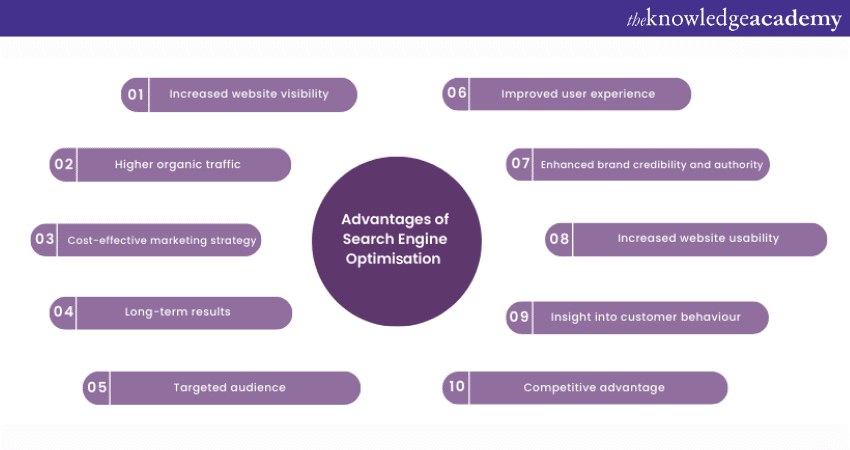Disadvantages of Search Engine Optimization: SEO can be time-consuming and unpredictable. Results may take months, with no guaranteed success.
Search Engine Optimization (SEO) offers many benefits but also comes with its set of challenges. Businesses often invest significant time and resources into SEO, only to find results are slow and uncertain. The ever-changing algorithms of search engines mean strategies must be continually updated.
This requires constant learning and adaptation, which can be exhausting and resource-intensive. Additionally, high competition for popular keywords makes it difficult for smaller businesses to rank well. Missteps in SEO practices can also lead to penalties, further complicating efforts. While SEO is essential for online visibility, understanding its disadvantages helps in creating a balanced and realistic strategy.

Hidden Costs
Search Engine Optimization (SEO) offers many benefits, but it also has hidden costs. These costs can surprise many business owners. Knowing these hidden costs helps you make better decisions.
Investment In Tools
SEO requires various tools for effective implementation. These tools help in keyword research, backlink analysis, and performance tracking.
- Keyword research tools can be costly.
- Backlink analysis tools often require monthly subscriptions.
- Performance tracking tools may charge based on the number of users.
A table below shows typical costs for some popular SEO tools:
| Tool Name | Monthly Cost |
|---|---|
| Ahrefs | $99 – $999 |
| SEMrush | $119 – $449 |
| Moz | $99 – $599 |
Outsourcing Expenses
Many businesses outsource SEO tasks to specialized agencies. While this can be effective, it also adds to costs.
- Hiring an SEO agency can cost anywhere from $500 to $5,000 per month.
- Freelancers might charge hourly rates between $50 and $200.
Below is a list of common outsourcing expenses:
- Monthly retainers for agencies
- Hourly rates for freelancers
- Project-based fees
Understanding these costs is crucial for budgeting your SEO efforts effectively.
Time-consuming Process
Search Engine Optimization (SEO) can be very slow. It requires a lot of patience. Unlike paid ads, SEO does not show instant results. This can be frustrating for many businesses.
Long-term Commitment
SEO is not a one-time task. It needs regular updates and maintenance. You must keep producing fresh content. You also need to keep track of algorithm changes. This demands a long-term commitment.
Consider the following tasks:
- Keyword research
- Content creation
- Link building
- Technical SEO updates
Each of these tasks requires time and effort. You cannot skip any of them.
Slow Results
SEO results are not immediate. It can take months to see changes. This slow process can discourage many. Businesses often want quick returns. SEO does not provide that.
Here is a general timeline:
| Time Frame | Expected Progress |
|---|---|
| 1-3 months | Initial setup and minor improvements |
| 3-6 months | Noticeable traffic increase |
| 6-12 months | Significant ranking improvements |
This timeline can vary based on competition and industry. Patience is key in SEO.
Algorithm Dependence
Search Engine Optimization (SEO) is vital for online visibility. But it has some downsides. One significant disadvantage is Algorithm Dependence. Search engines rely on algorithms to rank pages. These algorithms are complex and ever-changing.
Frequent Updates
Search engine algorithms are updated frequently. These updates can affect your rankings. You might see a drop in your search visibility overnight. Staying updated with these changes is challenging. You need to constantly adapt your SEO strategies.
Unpredictable Changes
Algorithm changes are often unpredictable. You can’t always prepare for them. These changes can be minor or major. Minor changes might not impact you much. Major updates can disrupt your entire SEO plan. This unpredictability adds a layer of uncertainty to SEO efforts.
| Algorithm Aspect | Impact on SEO |
|---|---|
| Frequent Updates | Requires constant monitoring and adaptation |
| Unpredictable Changes | Can lead to sudden drops in rankings |

High Competition
Search Engine Optimization (SEO) offers many benefits. But, it also has its drawbacks. One major disadvantage is the high competition. Many businesses are fighting for the same top spots on search engines.
Saturated Market
The digital market is very crowded. Everyone is trying to rank high on Google. This makes SEO harder for new websites.
- Thousands of websites target the same audience.
- Older websites have established authority.
- New sites struggle to gain visibility.
Newcomers face an uphill battle. The market saturation makes it harder to stand out.
Competitive Keywords
Competitive keywords are tough to rank for. Popular keywords have high competition. Many businesses target these high-volume search terms.
| Keyword | Monthly Searches | Competition Level |
|---|---|---|
| SEO Tips | 50,000 | High |
| Best SEO Tools | 30,000 | High |
| SEO Services | 20,000 | High |
Ranking for these keywords takes a lot of effort. New businesses need to be creative with their keyword strategy.
Technical Challenges
Search Engine Optimization (SEO) can be complex. It involves many technical aspects. These challenges can create barriers for websites. Let’s explore some key technical issues.
Complex Website Requirements
SEO demands specific website structures. This can be hard to implement. You need a fast website, which may require advanced coding skills. Correct HTML tagging is crucial. Missing tags can harm your ranking. You also need clear URL structures. Complicated URLs confuse search engines.
Consider these requirements:
- Clean code
- Proper meta tags
- Responsive design
Implementing these can be tough, especially for beginners. Technical expertise is often required.
Constant Optimization
SEO is never a one-time task. Constant updates are necessary. Search engines change their algorithms frequently. You need to stay updated with these changes. Ongoing adjustments are vital to maintain your ranking. This includes:
- Regularly updating content
- Fixing broken links
- Monitoring website speed
These tasks can be time-consuming. They require continuous effort and vigilance.

Risk Of Penalties
Search Engine Optimization (SEO) helps websites rank higher. But, it comes with risks. One big risk is the risk of penalties. Search engines can penalize websites for breaking rules. These penalties can hurt your site’s ranking and traffic.
Black Hat Techniques
Some people use black hat techniques to trick search engines. These methods aim for quick wins but are risky. Techniques include:
- Keyword stuffing
- Hidden text
- Link farming
These methods may work for a short time. But search engines catch on quickly. Then, they penalize the website. This can lead to a drop in rankings. Or, the site could be removed from search results.
Unintentional Violations
Sometimes, website owners unintentionally violate search engine rules. This can happen due to:
- Using outdated SEO practices
- Not understanding current guidelines
- Hiring inexperienced SEO experts
Even small mistakes can lead to big penalties. For example:
| Violation | Possible Penalty |
|---|---|
| Duplicate content | Lower rankings |
| Poor-quality backlinks | Loss of trust |
To avoid these risks, always follow best practices. Stay updated with search engine guidelines. This helps in maintaining a good ranking without penalties.
Quality Vs. Quantity
In the world of Search Engine Optimization (SEO), there is a constant debate between quality and quantity. While aiming for more content can boost visibility, it often leads to pitfalls. Let’s delve into the disadvantages of focusing on quantity over quality.
Content Overload
Creating too much content can overwhelm your audience. Visitors might find it hard to locate valuable information. This leads to a poor user experience.
- Excessive content can result in a cluttered website.
- Users may leave if they can’t find what they need quickly.
Search engines may also penalize websites with too much low-quality content. This can affect your site’s ranking negatively.
Maintaining Standards
Producing large amounts of content often compromises quality. Writers may rush to meet deadlines, leading to poorly researched articles.
- Low-quality content can damage your brand’s reputation.
- Users are less likely to trust your site.
Maintaining high standards ensures that your content remains valuable and relevant. Search engines prefer quality over quantity, rewarding well-researched and informative articles.
Balancing quality and quantity is crucial. A strategic approach to content creation can help maintain high standards while increasing visibility.
Frequently Asked Questions
Are There Any Disadvantages To Seo?
Yes, SEO can have disadvantages. It requires time and effort to see results. Algorithm changes can impact rankings. Competitive industries may need significant investment.
What Is The Biggest Problem With Seo?
The biggest problem with SEO is constantly changing algorithms. Businesses must continually adapt to maintain rankings.
What Are The Disadvantages Of Search Engines?
Search engines can display inaccurate information. They often prioritize paid results over organic ones. Privacy concerns arise due to data tracking. Competitive keywords increase advertising costs. Users may experience information overload.
What Are The Advantages And Disadvantages Of Seo And Sem?
SEO offers long-term results, cost-effectiveness, and organic traffic. SEM provides immediate visibility, targeted ads, and measurable ROI. SEO takes time and effort; SEM requires budget and can be costly.
What Are Seo’s Potential Drawbacks?
SEO can be time-consuming, costly, and may not guarantee immediate results. It requires ongoing effort and expertise.
Conclusion: Disadvantages of Search Engine Optimization
Understanding the disadvantages of SEO can help businesses make informed decisions. While SEO offers many benefits, it also presents challenges. Balancing these factors is key to an effective online strategy. Be mindful of potential drawbacks and adjust your approach accordingly. This ensures you maximize your online visibility while minimizing risks.


